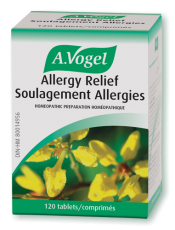In the capital of Ottawa, pollen count measures were 6,412 pollen grains/m3 in 2020, and 8,544 pollen grains/m3 in 2021. This striking difference was similar in cities across the nation. That increase is meaningful for the 40% of Canadians who report allergies to pollens and grasses.
This makes it challenging to know whether that runny nose, scratchy throat and case of the sniffles is due to allergies or the common cold. As mandates lift and people start to mingle once more, cases of the common cold may start to rise as the virus spreads.
Symptoms of both colds and allergies can be very similar, but there are some ways to tell them apart.
Allergies are typically caused by environmental factors such as pollen, dust or pet dander, while a cold is caused by a virus. If you're not sure whether you have a cold or allergies, pay attention to the following symptoms:
- If you have a cold, you're likely to have a fever, while fevers are rare with allergies.
- Colds also tend to cause more congestion and a runny nose, while allergies often cause sneezing and itchy, watery eyes.
- With a cold, you'll usually have a cough, but this is less common with allergies.
Your Spring survival kit should include clinically-proven remedies.
A.Vogel's Echinaforce®, made from fresh plants, has antiviral, anti-inflammatory and antibacterial properties. Over 30 clinical trials support its ability to:
- Cut the severity of symptoms and duration of illness
- Reduce the risk of secondary infections like pneumonia and bronchitis
- Reduce days spent tackling a fever
- Reduce the need for antibiotic prescriptions in children
The best part? It is safe for those pregnant and nursing!
Now while that helps with the cold side of things, you might consider reaching for something else when it comes to allergies.
Many are familiar with the nap-inducing effect of many over-the-counter anti-histamines. Allergy Relief by A.Vogel has been clinically proven to not only treat allergy symptoms but to lessen the sensitivity of your immune system to harmless allergens.
Allergy Relief can be taken by pregnant and nursing women as well as children ages 2+. It is recommended to start taking Allergy Relief one month prior to the Spring or Fall allergy season to prepare your immune system and significantly reduce your body's response.
References
Sedghy, Farnaz, et al. "Interaction between air pollutants and pollen grains: the role on the rising trend in allergy." Reports of biochemistry & molecular biology 6.2 (2018): 219.
Statistics Canada. (2017). Canadian Community Health Survey: Public use microdata file. Ottawa: Special Surveys Division, Statistics Canada.
Shah, Sachin A., et al. "Evaluation of echinacea for the prevention and treatment of the common cold: a meta-analysis." The Lancet infectious diseases 7.7 (2007): 473-480.
Brinkeborn, R. M., D. V. Shah, and F. H. Degenring. "Echinaforce® and other Echinacea fresh plant preparations in the treatment of the common cold: a randomized, placebo controlled, double-blind clinical trial." Phytomedicine 6.1 (1999): 1-6.
Schapowal, Andreas, Peter Klein, and Sebastian L. Johnston. "Echinacea reduces the risk of recurrent respiratory tract infections and complications: a meta-analysis of randomized controlled trials." Advances in therapy 32.3 (2015): 187-200.
Ogal, Mercedes, et al. "Echinacea reduces antibiotic usage in children through respiratory tract infection prevention: a randomized, blinded, controlled clinical trial." European journal of medical research 26.1 (2021): 1-9.
A. Suter, R. Schoop, Treatment of allergic rhinitis and pollinosis – A clinical trail to investigate the effi cacy and safety of the A.Vogel hayfever spray (Allergy Relief), 2004.






